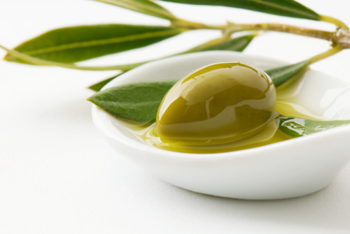Apr 13, 2025
Apr 13, 2025
 Olive is a Mediterranean evergreen tree (Olea europeae) having fragrant white flowers, usually lence-sahped leathery leaves, and edible drupes. The small ovoid fruit (olive) is an important food and a source of oil, which is yellow green, of low medium lightness, and moderate saturation. Oilve oil is oil pressed out of olives, and among other many uses is used in salad dressings, for cooking, as an ingredient in soaps, and as an emolient. Moreover, an olive branch is regarded as an emblem of peace.
Olive is a Mediterranean evergreen tree (Olea europeae) having fragrant white flowers, usually lence-sahped leathery leaves, and edible drupes. The small ovoid fruit (olive) is an important food and a source of oil, which is yellow green, of low medium lightness, and moderate saturation. Oilve oil is oil pressed out of olives, and among other many uses is used in salad dressings, for cooking, as an ingredient in soaps, and as an emolient. Moreover, an olive branch is regarded as an emblem of peace.
13-Dec-2010
More by : Dr. Frank S. K. Barar